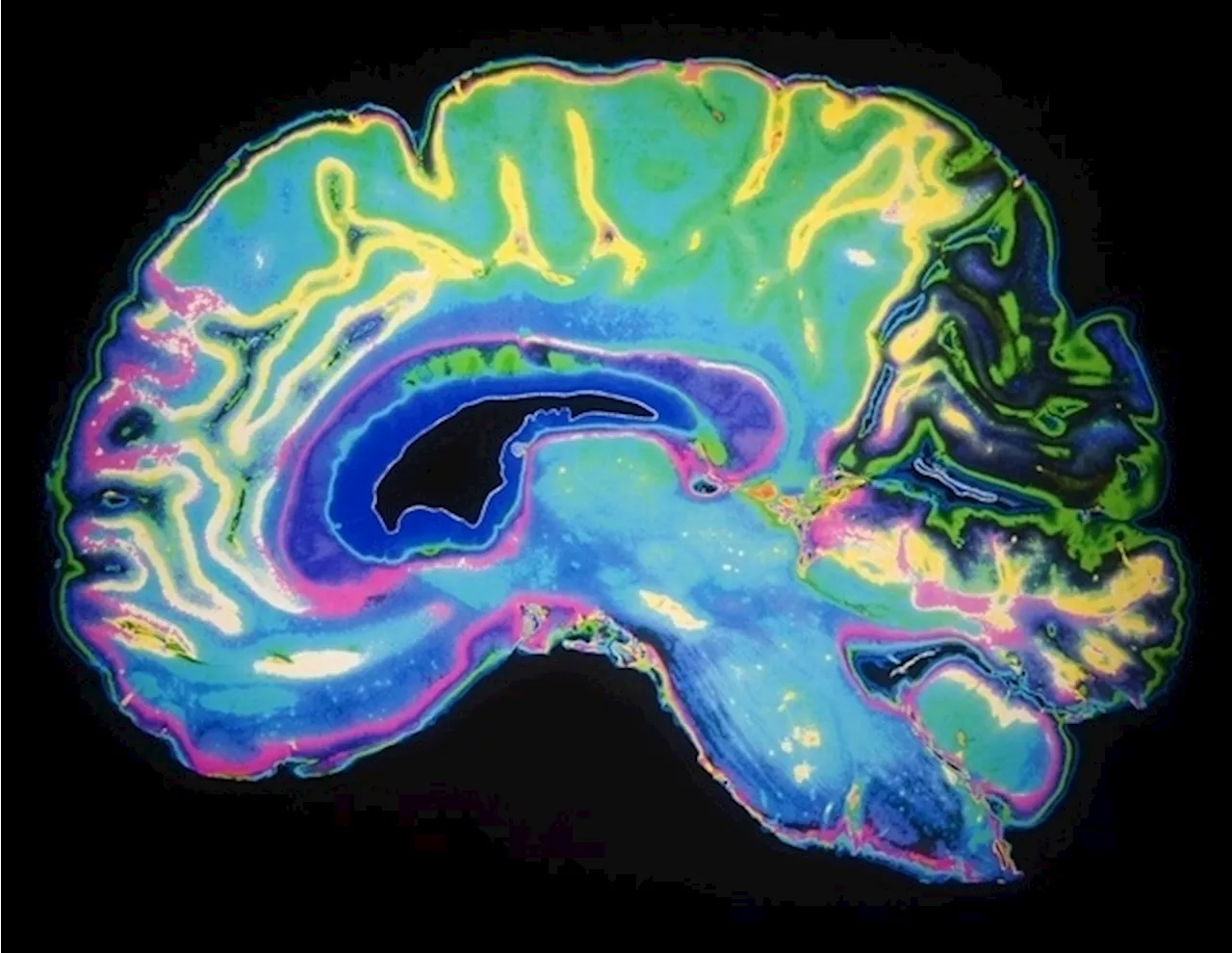A new study suggests that regular coffee drinkers, especially those who prefer unsweetened caffeinated coffee, may have a lower risk of developing Alzheimer's disease, Parkinson's disease, and other neurodegenerative conditions.
A recent study published in the journal Neurology has shed light on the potential link between coffee consumption and a reduced risk of developing neurodegenerative diseases such as Alzheimer's and Parkinson's. Researchers analyzed data from over 400,000 individuals and discovered that those who regularly drank caffeinated coffee, particularly the unsweetened variety, were significantly less likely to experience these debilitating conditions.
The study revealed that participants who consumed three or more cups of coffee daily demonstrated the most notable reduction in risk, with a 34% lower likelihood of developing Alzheimer's and related dementias, a 37% lower chance of developing Parkinson's disease, and a 47% decreased risk of death from neurodegenerative diseases compared to non-coffee drinkers. While the exact mechanisms behind this association remain unclear, the authors suggest that caffeine may play a protective role against brain degeneration. However, it is essential to note that the study only observed a correlation between coffee consumption and reduced risk, not a direct causal relationship. Further research is needed to confirm this link and investigate the potential impact of added sugars or artificial sweeteners on coffee's purported benefits. Despite the limitations, the findings provide valuable insights into the potential health advantages of moderate coffee consumption, particularly for individuals concerned about cognitive decline and neurodegenerative diseases
Coffee Alzheimer's Disease Parkinson's Disease Neurodegenerative Diseases Caffeine
United Kingdom Latest News, United Kingdom Headlines
Similar News:You can also read news stories similar to this one that we have collected from other news sources.
 Coffee: More Than Just a Morning Pick-Me-Up: Study Reveals Surprising Health BenefitsA recent study sheds light on the remarkable health benefits of coffee, especially when consumed in the morning. Experts suggest that coffee can significantly reduce the risk of heart disease and even mortality. The unique microbe Lawsonibacter, which thrives on coffee consumption, plays a crucial role in breaking down coffee fiber and promoting gut health. Professor Tim Spector, a UK epidemiologist, emphasizes that coffee is a 'health drink' and encourages moderate consumption for optimal well-being.
Coffee: More Than Just a Morning Pick-Me-Up: Study Reveals Surprising Health BenefitsA recent study sheds light on the remarkable health benefits of coffee, especially when consumed in the morning. Experts suggest that coffee can significantly reduce the risk of heart disease and even mortality. The unique microbe Lawsonibacter, which thrives on coffee consumption, plays a crucial role in breaking down coffee fiber and promoting gut health. Professor Tim Spector, a UK epidemiologist, emphasizes that coffee is a 'health drink' and encourages moderate consumption for optimal well-being.
Read more »
 Coffee Consumption Linked to Lower Dementia Risk in Older Adults with Atrial FibrillationA new study suggests that coffee consumption, up to five cups per day, may reduce the risk of dementia in older adults with atrial fibrillation. The study, conducted by scientists at Basel University Hospital in Switzerland, found that participants who drank more than two cups of coffee per day had lower levels of inflammatory blood markers associated with dementia and a reduced risk of memory-robbing symptoms. Researchers suggest that caffeine in coffee may protect against oxidative stress, amyloid buildup, inflammation, and cell death in the brain. However, the Alzheimer's Society cautions that this link has only been proven in mice and not humans, so further research is needed.
Coffee Consumption Linked to Lower Dementia Risk in Older Adults with Atrial FibrillationA new study suggests that coffee consumption, up to five cups per day, may reduce the risk of dementia in older adults with atrial fibrillation. The study, conducted by scientists at Basel University Hospital in Switzerland, found that participants who drank more than two cups of coffee per day had lower levels of inflammatory blood markers associated with dementia and a reduced risk of memory-robbing symptoms. Researchers suggest that caffeine in coffee may protect against oxidative stress, amyloid buildup, inflammation, and cell death in the brain. However, the Alzheimer's Society cautions that this link has only been proven in mice and not humans, so further research is needed.
Read more »
 Morning Coffee May Offer More Health Benefits Than All-Day ConsumptionA new study suggests that drinking coffee in the morning may be linked to a lower risk of death and heart disease compared to drinking it throughout the day. Researchers analyzed data from over 40,000 adults and found that morning coffee drinkers had a 16% lower risk of death and a 31% lower risk of dying from heart disease.
Morning Coffee May Offer More Health Benefits Than All-Day ConsumptionA new study suggests that drinking coffee in the morning may be linked to a lower risk of death and heart disease compared to drinking it throughout the day. Researchers analyzed data from over 40,000 adults and found that morning coffee drinkers had a 16% lower risk of death and a 31% lower risk of dying from heart disease.
Read more »
 Tobacco and Coffee Compounds May Protect Against Parkinson's DiseaseA new review suggests that specific components in tobacco and coffee may offer protection against Parkinson's disease. This finding could lead to innovative therapies.
Tobacco and Coffee Compounds May Protect Against Parkinson's DiseaseA new review suggests that specific components in tobacco and coffee may offer protection against Parkinson's disease. This finding could lead to innovative therapies.
Read more »
 Drinking Coffee in the Morning May Extend LifespanA recent study published in the European Heart Journal suggests that consuming coffee in the morning may be associated with a lower risk of heart disease and all-cause mortality. Researchers analyzed data from over 42,000 US adults and found that those who drank coffee primarily in the morning had significantly lower death rates compared to those who drank coffee throughout the day or those who didn't drink coffee at all. While this is an observational study and cannot establish causation, the findings highlight a potential link between morning coffee consumption and improved health outcomes.
Drinking Coffee in the Morning May Extend LifespanA recent study published in the European Heart Journal suggests that consuming coffee in the morning may be associated with a lower risk of heart disease and all-cause mortality. Researchers analyzed data from over 42,000 US adults and found that those who drank coffee primarily in the morning had significantly lower death rates compared to those who drank coffee throughout the day or those who didn't drink coffee at all. While this is an observational study and cannot establish causation, the findings highlight a potential link between morning coffee consumption and improved health outcomes.
Read more »
 Sex Differences in Microglia Response to Enzyme Inhibitor FoundNew research from the University of Rochester reveals that microglia, the immune cells of the central nervous system, may function differently in males and females. This discovery could have significant implications for understanding and treating neurodegenerative diseases like Alzheimer's and Parkinson's, as more women are diagnosed with Alzheimer's and more men are diagnosed with Parkinson's. Researchers found that female microglia exhibited a different signaling strategy when exposed to the enzyme inhibitor PLX3397, resulting in increased survival compared to male microglia.
Sex Differences in Microglia Response to Enzyme Inhibitor FoundNew research from the University of Rochester reveals that microglia, the immune cells of the central nervous system, may function differently in males and females. This discovery could have significant implications for understanding and treating neurodegenerative diseases like Alzheimer's and Parkinson's, as more women are diagnosed with Alzheimer's and more men are diagnosed with Parkinson's. Researchers found that female microglia exhibited a different signaling strategy when exposed to the enzyme inhibitor PLX3397, resulting in increased survival compared to male microglia.
Read more »
